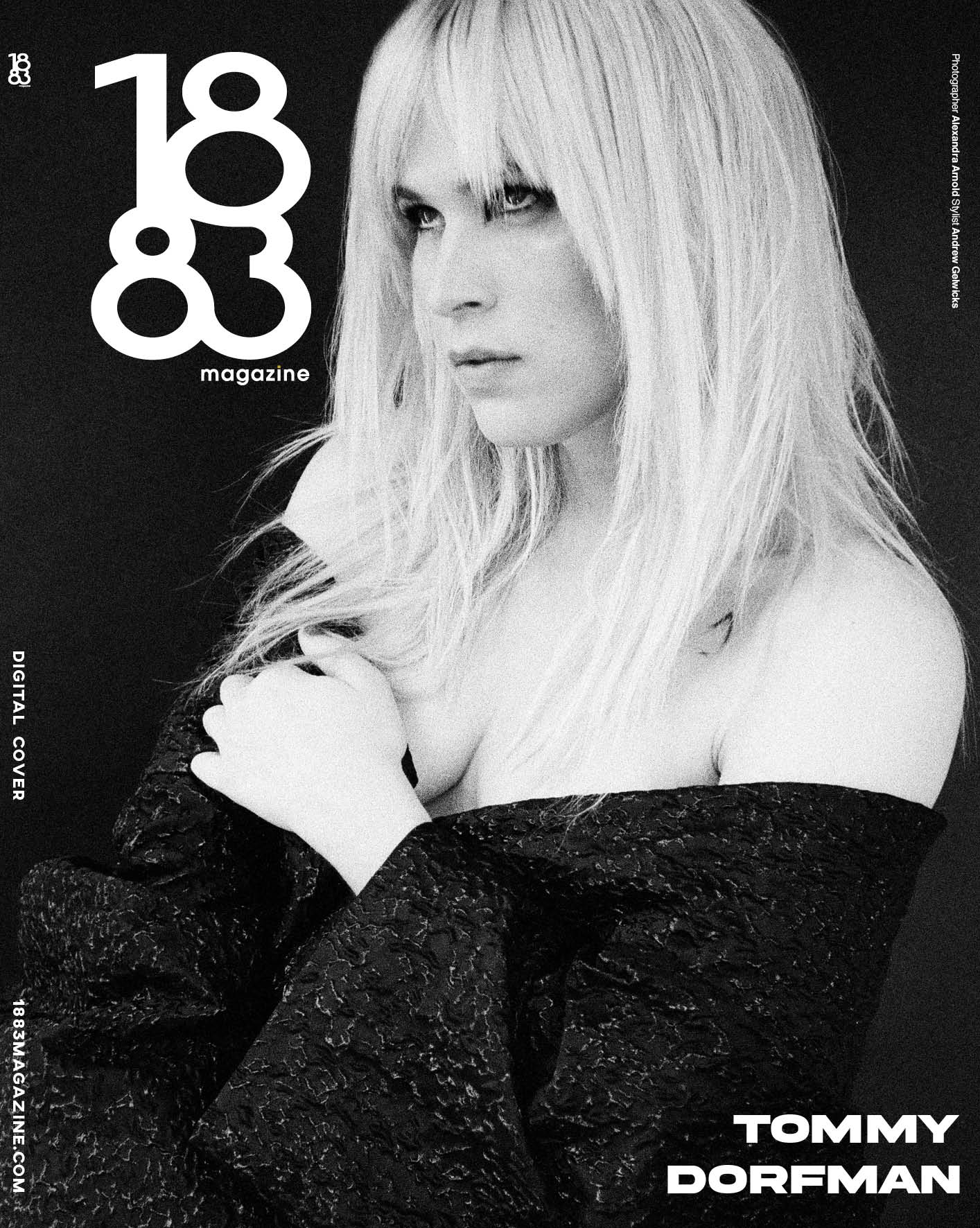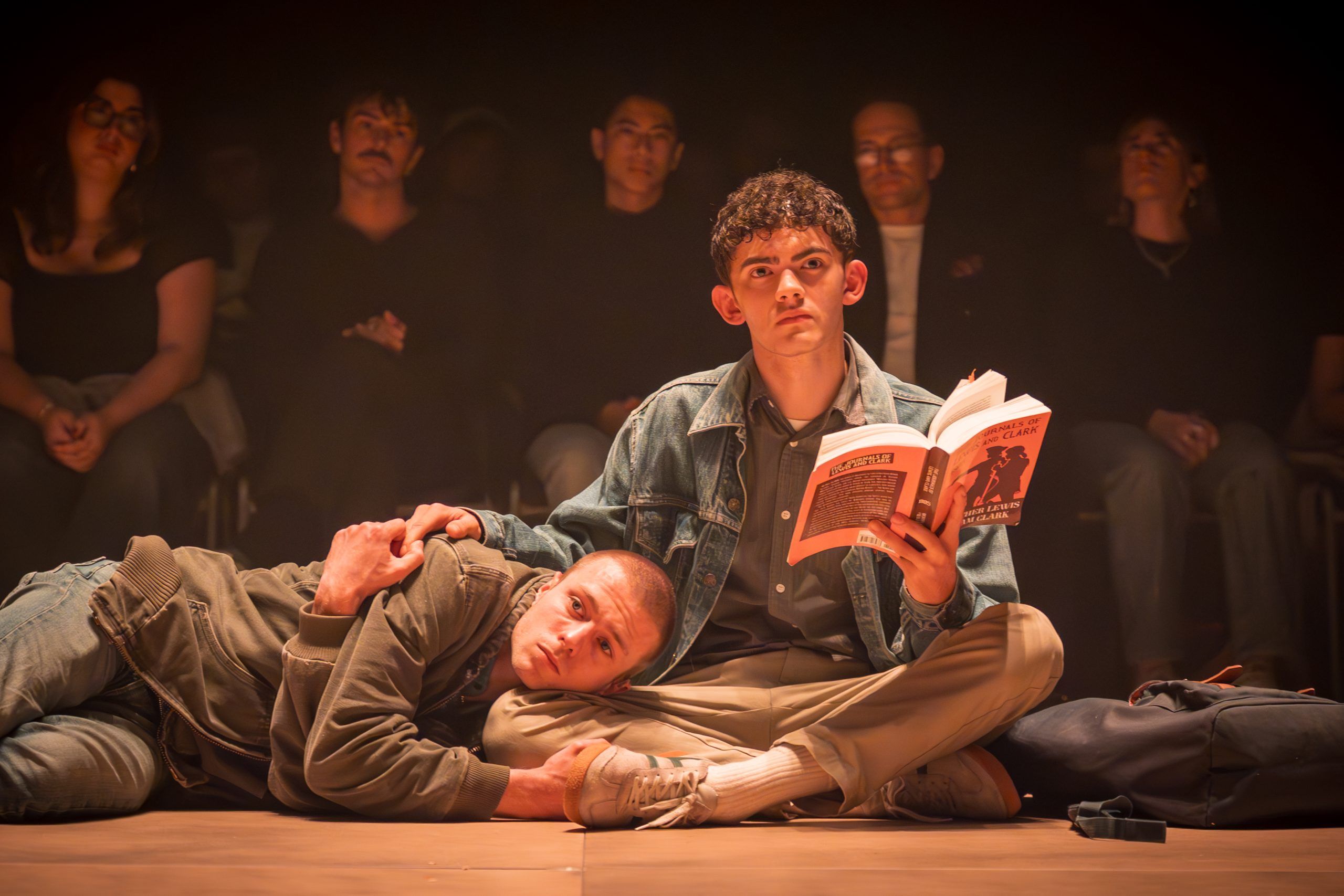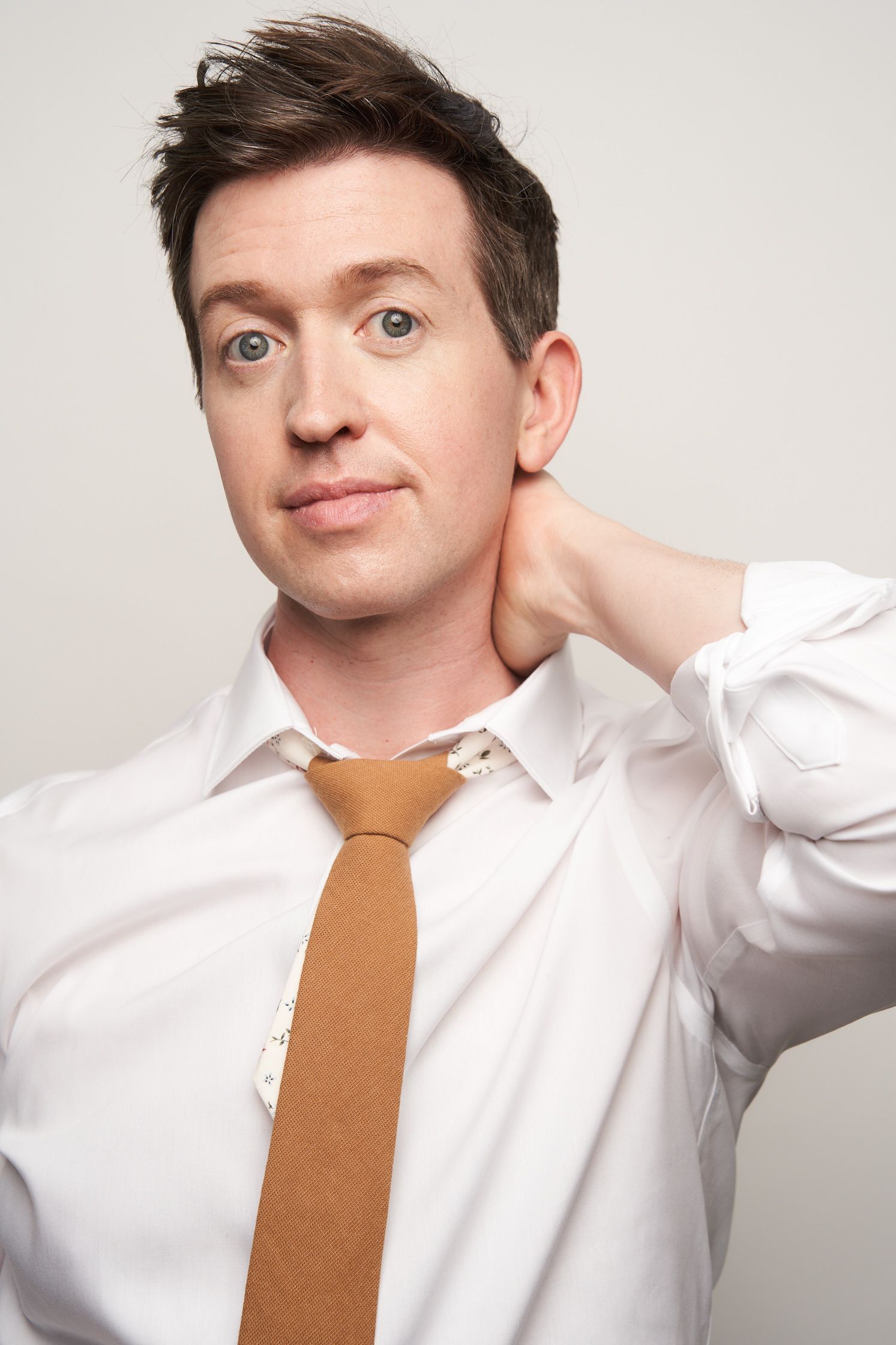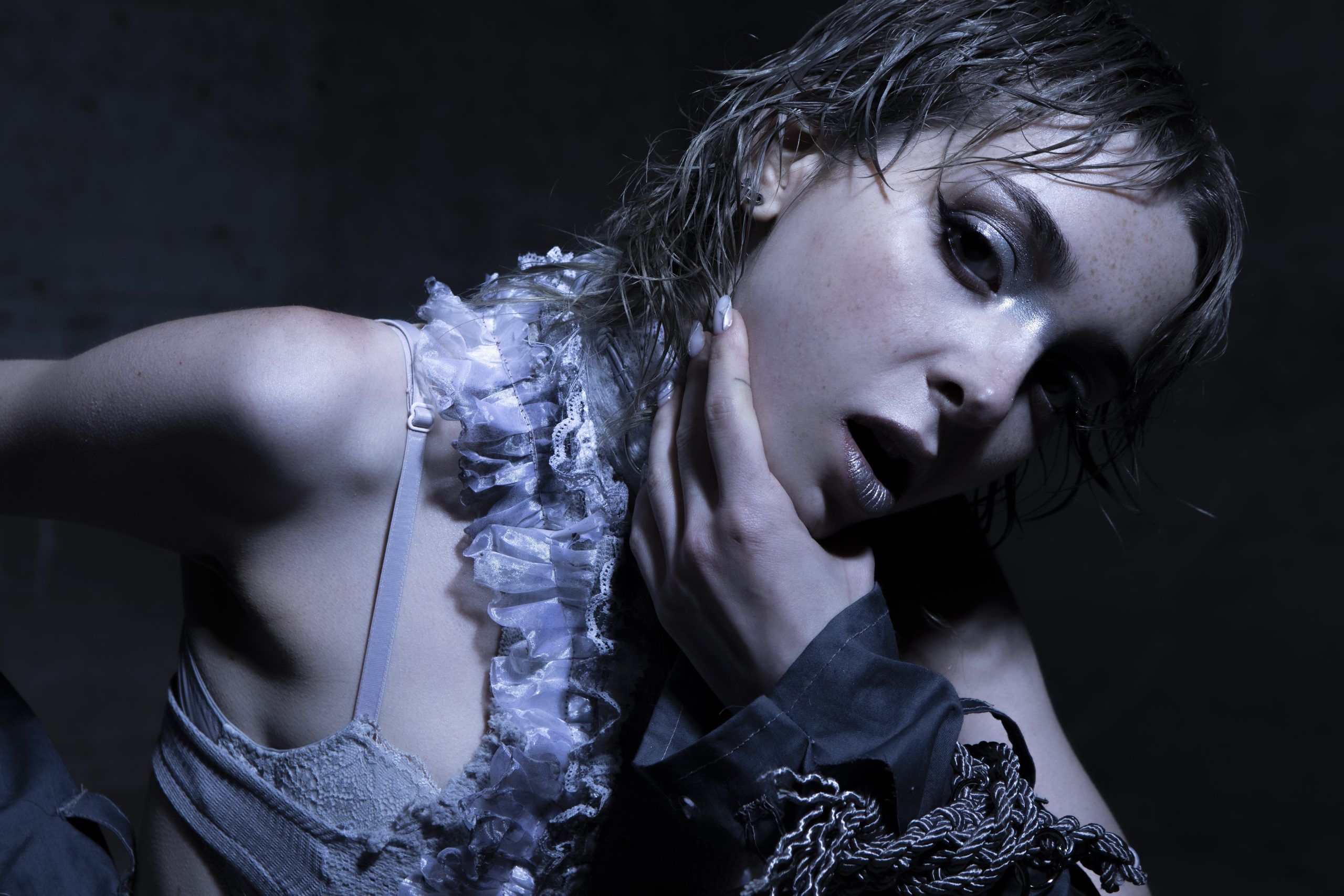Tommy Dorfman has a busy schedule. She recently screened her feature directorial debut at SXSW, an adaptation of the novel I Wish You All The Best about a nonbinary teenager who is shunned by their parents. Dorfman, who first read the book in 2019, immediately fell in love with the story, spending her time writing the script over the pandemic and dreaming of ways to adapt it cinematically.
Already the response following SXSW has been incredible — critics calling the film a “charming” debut and an ode to what nonbinary teens experience, touching on themes of autonomy and choosing happiness. But before the film, which has received positive reviews from festival critics, even bowed she was already looking to the future with another adaptation. This time of Mariko Tamaki’s Laura Dean Keeps Breaking Up With Me, a graphic novel illustrated by Rosemary Valero-O’Connell.
When we speak, she’s in the middle of a packed day, but despite the slightly manic energy of her ever-changing schedule, Dorfman is calm and at ease, gracious with her time and thoughtful as she details her journey with her identity, how she feels about 13 Reasons Why, and how her filmmaking gives her a chance to relive high school.
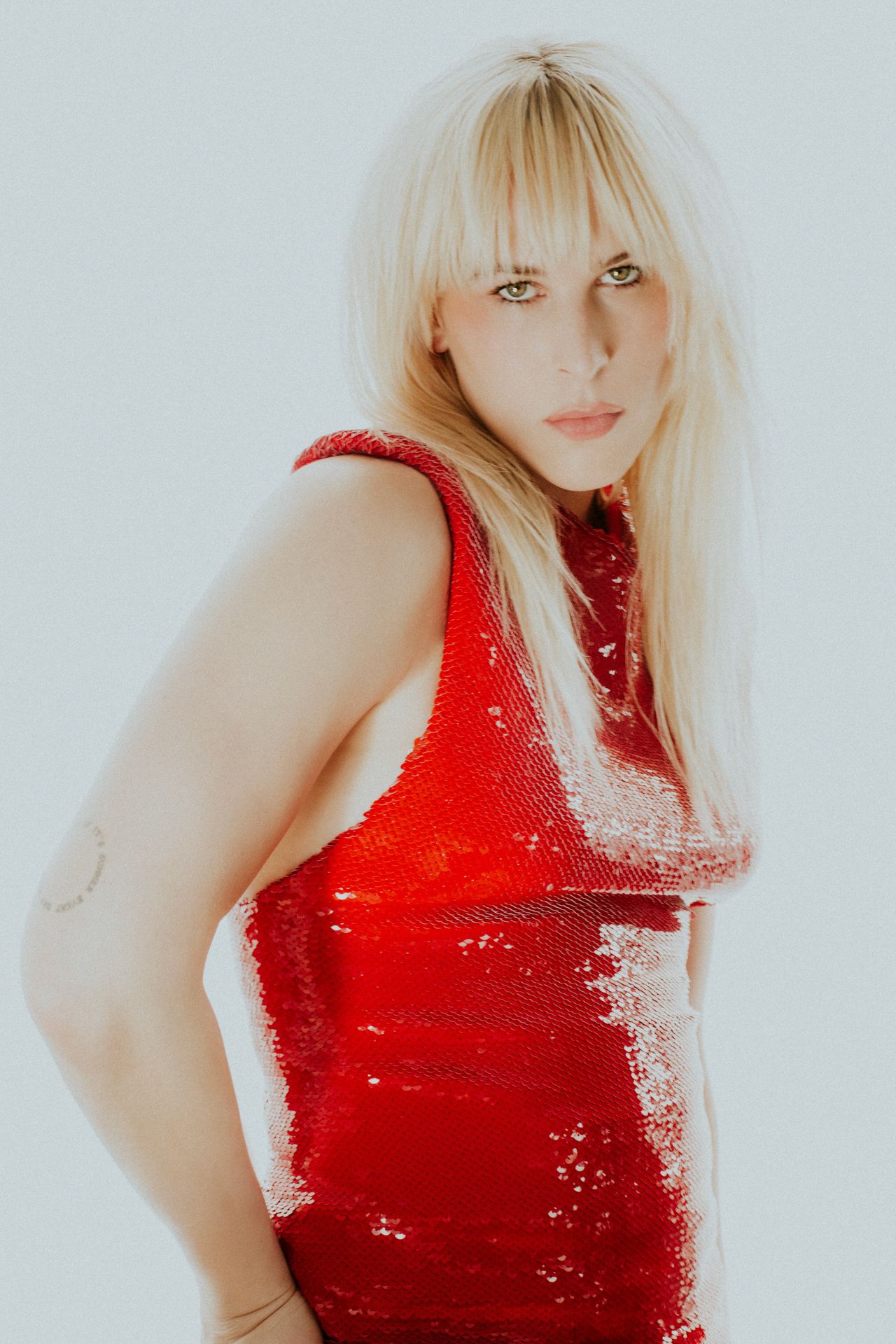
What was it about I Wish You All The Best that spoke to you specifically as a director?
I had first been sent the manuscript just before it was going to hit the shelves. And at the time, I was sort of between seasons on 13 Reasons Why, just fresh in my acting career. But had already written screenplays and was working on other directorial efforts, knowing that it would be a long haul and then it would take a lot of time to get anything made.
I was identifying as non-binary at the time. And when I read Mason’s book, I just never felt more held or seen or validated, of the person that I was. Also, I had this immediate urge to relive high school through Ben’s lens in some way because while there is tragedy, and conflict in Ben’s experience, there’s also a lot of hope and nourishment. I, as a high schooler growing up in the South who was trans, didn’t have a book like this, didn’t have a film or TV show with any characters that I felt I could see myself in, or reflected me…
Often trans people, or any marginalised group who lacks representation, we’re doing a lot of labour to relate to characters that are different from us. So I felt really inspired by the idea that I could take a familiar structure, work within a coming-of-age narrative, and offer a character we haven’t seen before.
I did feel uniquely qualified to do so just given that I was non-binary grew up in the South understood the complexities of how one county can swing so far right and conservative, and then just mere miles away could be a safety net and really, circumstances like parents and location can really affect how we’re able to blossom and grow as individuals.
I just threw my hat in the ring. When I met Mason [Deaver, the author], I was like ‘I’m by far the least qualified person who you’re meeting with, but what I can say is that I will work this through to the end’. But I’m so grateful that basically, the author entrusted me at that time when they really didn’t have much of a reason to if you’re just looking at a resumé. I was really drawn to how family can bolster you in different ways or hinder your growth.
The dynamic between Ben and their family I think spoke volumes to the layered experience of coming out. Particularly, when their parents turn up at Hannah’s house (Ben’s sister, played by Alexandra Daddario) and make reference to her assumption that Ben’s ‘coming out’ was about being gay.
I had an opportunity, I realised, when I was adapting the story to play with how these three different generations might understand Ben and might put them in certain boxes for their own safety. It’s often what happens. People need to classify other groups of people to place themselves.
I think it’s interesting to have someone like Thomas, who Cole Sprouse plays, have a little bit more knowledge about the teenage experience, and soften even more to Ben’s truth than Hannah at first. I think she is one of those people who never wants to go back to high school, never wants to relate to teenagers, and wants to move on with her life and leave that in the past. And this forces her to kind of confront her own stuff as well.
It’s cool to hear that, though, because I think depending on who watches the film, certain moments will stick more than others. And I did make a lot of changes from the book, which I was given full permission to do because it just felt like what the book served in 2019 versus what we’re going through in 2024 are just different experiences. For trans kids I think there’s this fear, we fear what we don’t know and living in the grey, it challenges everyone else’s life.
They’re following whatever path they think they need to follow and to see somebody divert from that, it can feel really threatening. To me is what is happening with Ben’s parents. It’s actually even more confusing and even more scary and even more daunting for them to have a child who’s living in the unknown.
I read an article recently that talked about how individualising healthcare to be open to trans people is hugely beneficial for healthcare in general because it further breaks down these other medical boxes that people are pushed into.
I think individualised care that’s really need-based and specific for people should be the goal at the end of the day because we all need different things. And yet there are some universal medications. For example, I take one that women who are going through menopause take if they want to prevent that. So there are also these ways that trans healthcare and cis healthcare overlap.
There’s also a larger population of Gen Z and Gen Alpha who identify somewhere on the queer spectrum. It’s just more normalised. And, when you grow up on the internet with so much access to different lived experiences, even if you come from a more conservative family, you can find ways to understand yourself through individualism.
Switching gears quickly, before we spoke I was doing some research and the Google meta headline for a story about you adapting Laura Dean Keeps Breaking Up With Me read ‘13 Reasons Why Star to adapt – yada yada.’ Now obviously that’s an SEO headline – which as a journalist, they’re the bane of our existence. But from your perspective, what is it like to have that connection constantly reinforced?
Search engine optimization is designed not just to keep me in the past, but it pulls us all back. For me, I can separate my individual experience from that particular project. I think the thing that irks me more when I google myself is the amount of boy photos that still show up online. It took almost two-plus years for me to even get my Wikipedia photo changed after coming out even though my Wikipedia text changed. I remember thinking this is such a crazy world I’m living in and I have to fight just to get photos populating that are more representative of who I am today versus who I was.
It’s funny, too, because my role on 13 Reasons Why is not even that large. The show was just so big. So I understand it from a practical business perspective, from the media. It can feel very jarring to be constantly reminded of that time. And on the other side of that, it’s incentivizing to continue to create more work. It’s almost humbling because I still haven’t made a mark. I don’t know if any of us who are on that show will [do something] as big as 13 Reasons Why.
I can see that show in that job and that experience for both the blessing that it was and also you know, I don’t want to… curse sounds dramatic. Because it’s not a curse. It was not a curse. But both the blessing of it and, you know, discomfort..
It’s tethered to you.
Yes! It’s tethered. Luckily, it’s something I am quite proud of. I have a lot of gratitude for that time in my life. It was my first job and it was a really good first job and I can recognise that as well. There’s still a very public resonance with that show.
Compared to I Wish You All The Best, what spoke to you about Laura Dean Keeps Breaking Up With Me? They’re both teen, YA high school stories, but they’re very different queer narratives.
Something I’ll say about transitioning as an adult is it can feel very infantilizing at times because you’re going through a second puberty. It’s opening up physically, emotionally, and subconsciously. For me, at least, I saw a lot of holes in my development from when I was coming of age. I find it quite healing to work as a director and tell stories that are coming-of-age stories.
I don’t think it will be my exclusive career track by any means, but it is kind of what I’m interested in right now. Offering larger audiences the world access to more expansive stories that centre a variety of queer characters. Ben’s experience is very insular. It’s very intimate and it’s a much more simple, and I would say earnest film than what Laura Deam will be. Mariko also wrote the screenplay, and it came through a very traditional kind of process, it got sent to my agent.
When I got the script, I was trying to figure out what my next thing would be. I had a locked picture on I Wish You All The Best, and when I read Laura Dean, what excited me about it is that there is no conflict whatsoever around identity in the story. It is this universal love-bomb-y relationship that happens to be between two women. They’re all living in a town where their identity is not the problem, but behaviour is the problem.
So that was exciting to me. I am a gay girl at this point in my life. I’m in a relationship with a woman, I am a woman, a trans woman. So again, this idea that ‘oh, I can relive highschool’ and I also read it and I was like, ‘Oh my God, I wish I had an example of a relationship like this when I was in high school’ because I made so many crazy mistakes because there was nobody there to guide me. Or no one felt like they could.
Even having parents who accepted me and all the versions of myself along the way, didn’t have the resources or the confidence to parent me in certain aspects of my life, specifically around love and relationships. And I think that’s quite universal. I think there are a lot of parents who feel really uncomfortable talking to their children about sex, love and relationships. So the more stories we have that tell different versions of what that can look like as teenagers or young adults, I think the better.
And, I think the story is quite universal. I think this relationship dynamic is quite universal, between Laura and Freddie, and that’s what drew me. I know straight cis people who’ve been in a similar kind of dynamic and aren’t sure how to get out of that, who have blown up parts of their life to stay in a relationship that isn’t actually serving them, that’s actually quite abusive even at times, emotionally.
I also really love the colour palette. I love that I get to paint on the larger canvas as a director. It’s more expansive and has more set pieces. There’s more movement, there’s more poetry and relief, and there’s a schtick. It’s just off-centre in the way that I really like.
In addition to directing you have a podcast about first times, and a digital editorial, kind of lifestyle platform as well. How do these endeavours fit into your relationship to being a director?
I think that there is limited access for queer and trans artists, and anything I can do to offer another space for people to publish their work or immortalise it in some way or share their artistry with the world, I want to do. It’s called Club Curran and we really focus our efforts, editorially, on emerging queer writers right now who, for the most part, might have a harder time getting published for the first time elsewhere.
It’s exciting for me to read people’s work and their words and because we really are such a diverse sect of the population. We have so many stories to tell that differ from the stories that I have, that I am so privileged to tell. I think it’s really important for all of us to lift the next generation up, so this is an exercise in that. I don’t know where it will go. I don’t know really where we’re growing into. I just know that I’m advantaged enough to create this thing.
And the podcast is fun because I’m just a curious person. I’m nosy, so I really did that for myself. I didn’t have a clear plan when I was releasing episodes, I just started doing it as more of a passion project because I love people and I love first times, I think first times are really universal. I’m fascinated by them. So that was really where that came from. You know, nosy b*tch.
That’s going to be the headline: Tommy Dorfman, nosy b*tch.
Tommy Dorfman, 13 Reasons Why, she’s a nosy b*tch.
Interview Gabriella Geisinger

